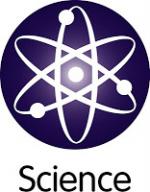|
This section contains 900 words (approx. 3 pages at 300 words per page) |

|
SOURCE: “‘Sweet Skepticism of the Heart’: Science in the Poetry of Emily Dickinson,” in College Literature, Vol. 19, No. 1, February, 1992, pp. 121-28.
In the following essay, White discusses the impact of science on Dickinson's poetry, speculating that the poet used her writing to explore the negative effects of the scientific impulse to uncover every secret of nature.
Few poets in the twentieth century, let alone the nineteenth, have incorporated scientific concepts into their work as purposively and effectively as Emily Dickinson.1 She possessed an amazingly comprehensive scientific and technical vocabulary.2 More than 200 of her poems touch on scientific themes (see Appendix); she draws on most of the sciences, from physical sciences such as physics, astronomy, chemistry, and geology, to biological sciences such as botany, physiology, medicine, and even psychology, to science in general (the largest category), plus mathematics and applied science or technology.
Why did Dickinson devote such attention...
|
This section contains 900 words (approx. 3 pages at 300 words per page) |

|


